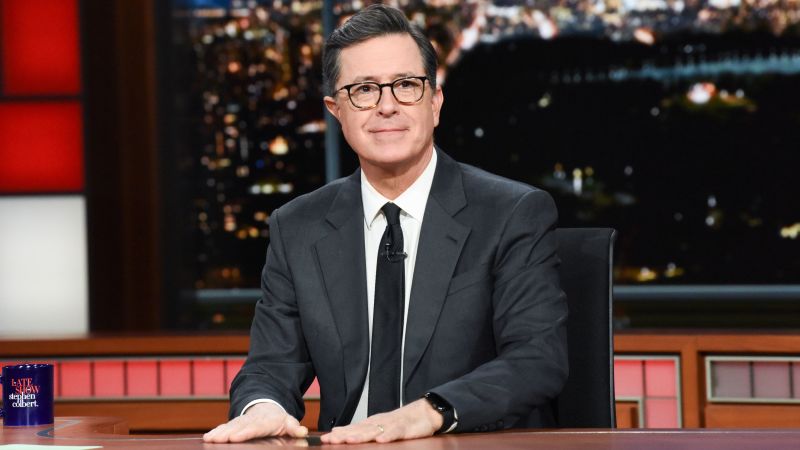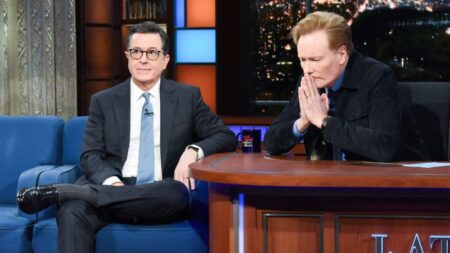When Stephen Colbert was announced as the successor to David Letterman as host of the CBS “Late Show” in 2014, the reaction from audiences and critics alike was a blend of excitement and skepticism. Letterman had been a stalwart of late-night television for 22 years, cultivating a devoted following during his tenure. At the time of his appointment, Colbert was predominantly known for his work on Comedy Central’s “The Colbert Report,” where he parodied political commentary. This shift raised questions about whether Colbert’s particular blend of political satire and current news commentary would resonate with the established audience that Letterman had nurtured.
In discussing his new role, Colbert expressed a sense of determination, stating that he could only focus on the type of show he wanted to create. “I don’t know what anybody else is going to do… I can only do what I do,” he remarked to the New York Times in 2015. Despite a rocky start, Colbert found his footing, and by 2017, “The Late Show” had regained and maintained the top position in the late-night ratings landscape, outpacing well-known competitors such as Conan O’Brien, Jimmy Fallon, and Jimmy Kimmel. His ability to combine humor with pointed political critiques, especially in the wake of contentious events and figures, played a significant role in his show’s success.
However, on Thursday, news broke that CBS would cease production of “The Late Show” by next May. The network cited financial difficulties as a primary reason for this decision, though there was speculation regarding the broader implications of the cancellation. Notably, this news emerged in the throes of a substantial sale of Paramount and followed closely after a legal settlement involving former President Donald Trump and CBS News. Colbert’s outspoken criticism of Trump has been a defining aspect of his show’s narrative, and many observers found the timing of the cancellation curious, prompting discussions about potential political motivations behind the decision.
Colbert’s cancellation has elicited a wave of support from fellow hosts and prominent figures. Jimmy Kimmel, who leads ABC’s “Jimmy Kimmel Live,” took to Instagram to express his feelings, demonstrating camaraderie with Colbert while expressing frustration with CBS. Kimmel’s choice of language reflected the emotional stakes involved, indicating the strong ties and competitive nuances within the late-night circuit. Similarly, Jimmy Fallon expressed his shock and admiration for Colbert’s talent, reminiscing about their anticipated future together in the late-night arena.
Beyond his peers, the decision sparked reactions from political figures, including Democrat Senator Elizabeth Warren. She expressed concern over the potential political implications tied to the cancellation, particularly due to Colbert’s recent comments questioning the integrity of CBS’s dealings with Trump. Warren’s assertion that America deserves clarity on whether Colbert’s show faced ideological censorship underscored the broader context of political discourse interwoven with the landscape of entertainment.
As Colbert informed his studio audience about the end of his show, the reaction was palpable, and the audience responded with discontent manifesting in boos. Colbert, displaying his characteristic warmth, acknowledged the audience’s sentiments, emphasizing gratitude towards CBS for the opportunity and the support he had garnered throughout his decade on the air. He underscored the significance of the community comprised of both viewers and staff, conveying the invaluable nature of his tenure in comedic broadcasting.
Colbert concluded by stating, “It is a fantastic job… I wish somebody else was getting it,” conveying both his appreciation for the platform and an awareness of the emotional complexities surrounding his departure. As the curtain lowers on “The Late Show,” its legacy—marked by sharp wit, engaging interviews, and heartfelt commentary—will linger, leaving a significant mark on the late-night television landscape. The cancelation not only echoes the shifting tides of viewer preferences but also highlights the intricate interplay of entertainment and politics in contemporary society.











